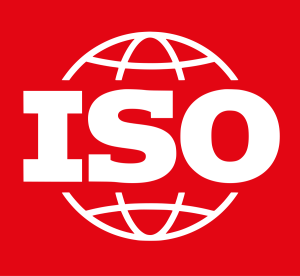the most important 11 Standard ISO Management system
The International Organization for Standardization is an international standard development organization composed of representatives from the national standards organizations of member countries. Membership requirements are given in Article 3 of the ISO Statutes.
ISO was founded on 23 February 1947 and (as of November 2022) it has published over 24500 international standards covering almost all aspects of technology and manufacturing. It has 809 Technical committees and sub committees to take care of standards development. The organization develops and publishes standardization in all technical and nontechnical fields other than electrical and electronic engineering which is handled by the IEC.
It is headquartered in Geneva Switzerland and works in 167 countries as of 2022. The three official languages of the ISO are English- French and Russian.
-
What is a management system?
A management system is the way in which an organization manages the interrelated parts of its business in order to achieve its objectives. These objectives can relate to a number of different topics including product or service quality operational efficiency environmental performance health and safety in the workplace and many more.
The level of complexity of the system will depend on each organization’s specific context. For some organizations especially smaller ones it may simply mean having strong leadership from the business owner providing a clear definition of what is expected from each individual employee and how they contribute to the organization’s overall objectives without the need for extensive documentation. More complex businesses operating for example in highly regulated sectors may need extensive documentation and controls in order to fulfil their legal obligations and meet their organizational objectives.
-
The ISO model: agreed by experts
ISO management system standards (MSS) help organizations improve their performance by specifying repeatable steps that organizations consciously implement to achieve their goals and objectives and to create an organizational culture that reflexively engages in a continuous cycle of self-evaluation correction and improvement of operations and processes through heightened employee awareness and management leadership and commitment.
The benefits of an effective management system to an organization include:
- More efficient use of resources and improved financial performance
- Improved risk management and protection of people and the environment
- Increased capability to deliver consistent and improved services and products thereby increasing value to customers and all other stakeholders
MSS are the result of consensus among international experts with expertise in global management leadership strategies and efficient and effective processes and practices. MSS standards can be implemented by any organization large or small.
-
MSS and related standards: the big picture
There are four different types of ISO documents that support organizational management. We’ve grouped these below with examples of standards given for each.
-
Management Systems Standards (MSS)
ISO standards that set out requirements or guidance to help organizations manage their policies and processes to achieve specific objectives. MSS are designed to be applicable across all economic sectors various types and sizes of organizations and diverse geographical cultural and social conditions.
Many ISO MSS have the same structure and contain many of the same terms & definitions and requirements.
-
Sector-specific MSS
ISO management system standards that provide additional requirements or guidance for the application of a generic management standard in a specific economic or business sector.
-
Management system related standards and implementation guidance
ISO standards that are intended to provide further guidance and/or requirements on:
- specific aspects of an organization’s management system.
- ISO management system standards or related supporting techniques.
-
Management standards
ISO management standards that may support the implementation of specific aspects of an organization’s management system.







